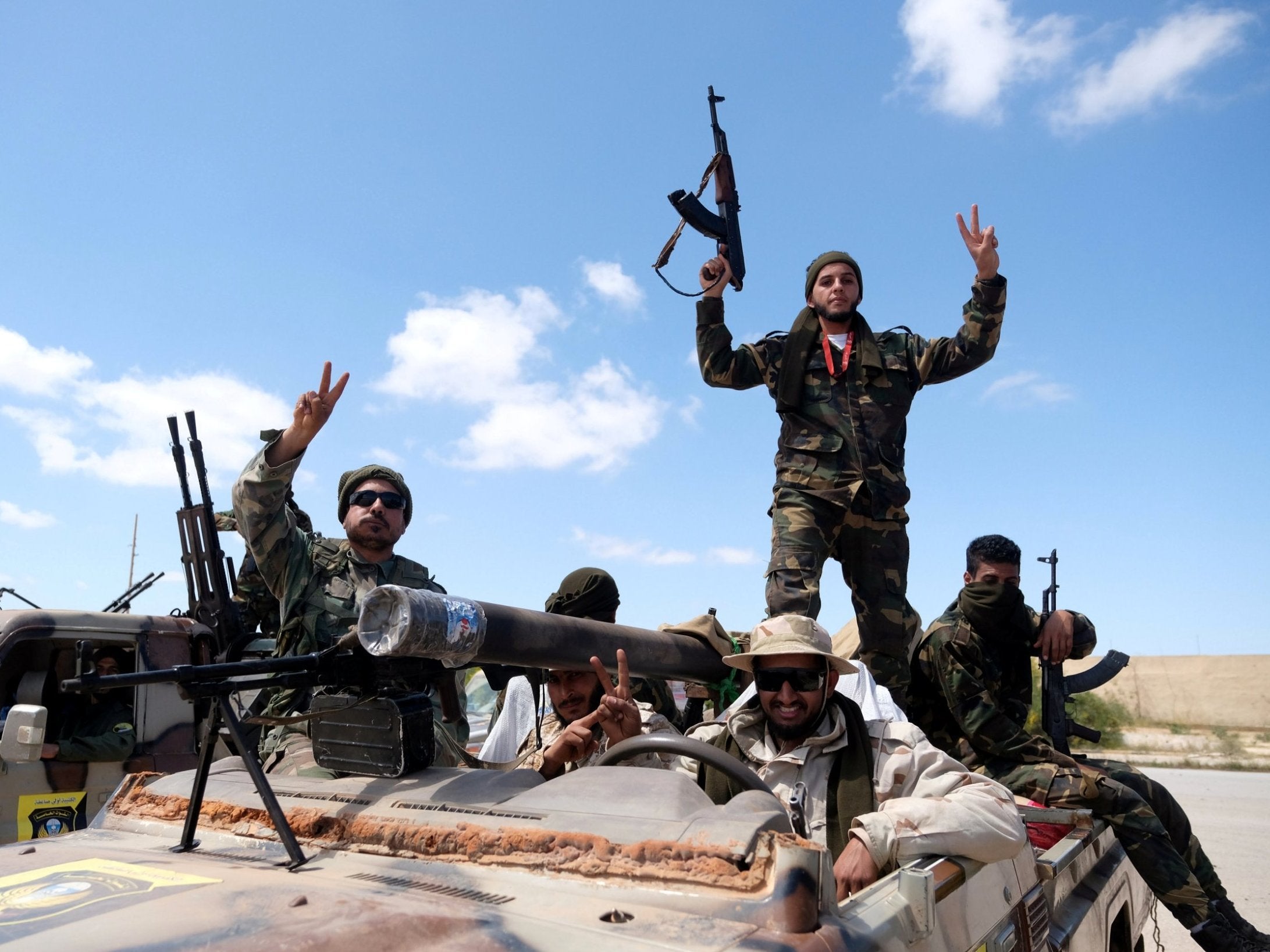US moves troops out of Libya as fighting surges between rival military groups
'The security realities on the ground in Libya are growing increasingly complex and unpredictable,' US commander says

Your support helps us to tell the story
From reproductive rights to climate change to Big Tech, The Independent is on the ground when the story is developing. Whether it's investigating the financials of Elon Musk's pro-Trump PAC or producing our latest documentary, 'The A Word', which shines a light on the American women fighting for reproductive rights, we know how important it is to parse out the facts from the messaging.
At such a critical moment in US history, we need reporters on the ground. Your donation allows us to keep sending journalists to speak to both sides of the story.
The Independent is trusted by Americans across the entire political spectrum. And unlike many other quality news outlets, we choose not to lock Americans out of our reporting and analysis with paywalls. We believe quality journalism should be available to everyone, paid for by those who can afford it.
Your support makes all the difference.US troops are being moving out Libya after a surge in fighting between rival groups left foreign powers scrambling to ensure the safety of their forces and peacekeepers in the country.
“The security realities on the ground in Libya are growing increasingly complex and unpredictable,” Thomas Waldhauser, head of US Africa Command, said. “Even with an adjustment of the force, we will continue to remain agile in support of existing US strategy.”
He did not say where the unspecified number of US forces stationed in the country would relocate to.
The US decision came as rebel commander Khalifa Haftar and his Libyan National Army mounted an offensive on the country's capital Tripoli.
The city is the seat of Libya’s government, which is supported by the United Nations and a number of militias.
Mr Haftar is instead aligned with a rival administration and parliament, located in eastern Libya.
The rebel commander’s forces claimed on Saturday, to have seized Tripoli airport, which has not been functional since fighting in 2014, and the area around it.
Fighting between rival groups continued at the site continued as Mr Haftar claimed to have launched air strikes on Tripoli’s outskirts.
Libya has been gripped by violence since 2011, when a popular uprising against dictator Muammar Gaddafi led to civil war and years of unrest.
Mr Haftar, a one-time army officer loyal to Gaddafi, spent years in exile in the US state of Virginia before returning and eventually declaring war on the country’s interim authorities in 2014.
His surprise assault on Tripoli came ahead of peace talks, organised by the UN, which are to be held on 14 April.
The UN is due to withdraw all non-essential staff in the area, the BBC reported.
India has also relocated all 15 of its stationed peacekeepers from Tripoli, Sushma Swaraj, the country’s External Affairs Minister, said.
UN secretary general Antonio Guterres struck a pessimistic tone after meeting with Mr Haftar last week.
“I leave Libya with a heavy heart and deeply concerned. I still hope it is possible to avoid a bloody confrontation in and around Tripoli,” he wrote on Twitter. “The UN is committed to facilitating a political solution and, whatever happens, the UN is committed to supporting the Libyan people.”
Additional reporting by agencies
Join our commenting forum
Join thought-provoking conversations, follow other Independent readers and see their replies
Comments